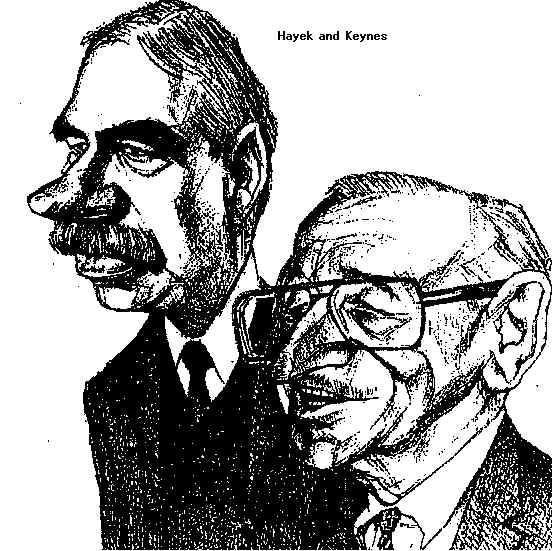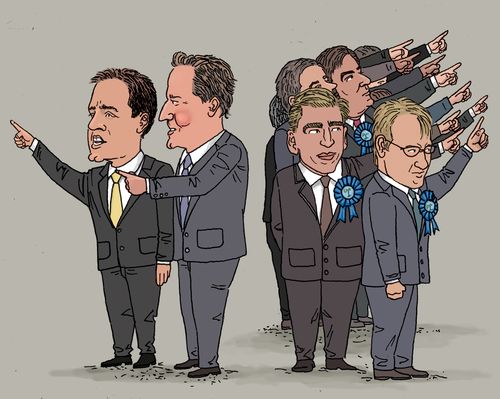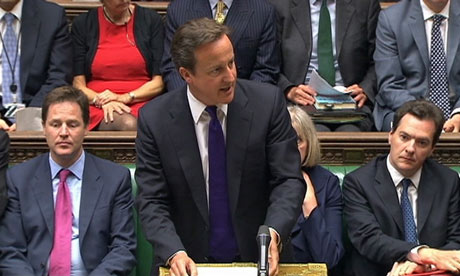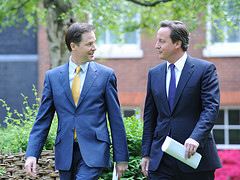
Contemporary British Politics and the Phenomenon of the Guru
What do John Maynard Keynes, Michael Young, Thomas Balogh, Friedrich von Hayek, Milton Friedman, Eric Hobsbawm, Anthony Giddens, Phillip Blond, Tim Soutphommasane and Michael Sandel have in common? Apart from them all being intellectual men, they were, at one time or another, recognised, often by everybody except themselves, as ‘gurus’.

Towards a New Politics of Production
The coalition government is nearly halfway through its term and little way towards finding a strategy for growth. For the British Labour party, several key priorities for growth are taking shape, but sharper definition is now required The Left has to identify a new politics of production and growth. The recent UK growth statistics underline the catastrophic damage and continuing aftershocks inflicted by the financial meltdown in 2008-9, exacerbated by the never-ending crisis in the eurozone. Despite it’s disastrous track-record of macro-economic management, epitomised by the Lawson boom in the late 1980s and George Osbourne’s ill-timed retrenchment since 2010, the Conservatives have consistently positioned themselves as the party of fiscal discipline and economic competence, as well as the party of …

A Shift to the Right: Conservatism Beyond Cameron’s Coalition
‘Conservatives need to recast the argument about free enterprise for a new age, or risk losing the debate to a tide of anti-market socialisation.’ Elizabeth Truss MP David Cameron’s first major Cabinet reshuffle since becoming Prime Minister in May 2010 was accused or hailed as signifying a ‘shift to the right’. The bruiser of the Tory Left Kenneth Clarke was replaced at the Ministry of Justice by Chris Grayling, a darling of the Tory Right. Matthew Hancock and Michael Fallon, two unabashed Thatcherites, have been installed as Business ministers whose primary purpose is to restrain the egalitarian and regulatory urges of Vince Cable. Other signals that the Coalition has moved to the ideological Right bear witness with …

‘The West’s most radical government’: A Mid-Term Assessment of Cameron’s ‘Conservative-led’ Coalition
The ‘Conservative-led’ Coalition Government, to apply Sir Winston Churchill’s oft-quoted comment on Russia, is nothing short of ‘a riddle wrapped in a mystery inside an enigma’. Nevertheless, we can can try to decode its behaviour in both ideological terms and its necessary translation into action-oriented public policy positions. It shouldn’t be hard. The Economist recently described the Cameron Government as the ‘West’s most radical government’. The formation of the Coalition, to use the jargon of political science, was potentially an ‘inflection point’ in British politics. It has, even with a limited two-year perspective, the potential to be as seismic a political benchmark as the 1945 landslide victory for Clement Attlee’s programme for democratic socialism or Mrs Thatcher’s 1979 election victory …

What coalition?: Let’s be honest, a Tory-only government would not have done things that differently
On the BBC’s Sunday Politics programme this week, former Defence Secretary and darling of the Tory Right, Liam Fox, suggested that ‘it is a game for academics’ to discern as to whether a Cameron Government policy (i.e. without Liberal Democrat restraint) would be that different from a Coalition Government policy. I reckon it’s not just an ‘academic game’, but nevertheless I’ll give it a go. The central contention here is that a Tory majority Cameron Government would, mutatis mutandis, be no different to today’s Coalition Government in terms of ideology, public policy and behaviour. Some academics agree. Tim Bale and Robin Kolodny observed recently that Britain has a ‘Coalition government but one that, to all intents and purposes, looks, sounds and …









